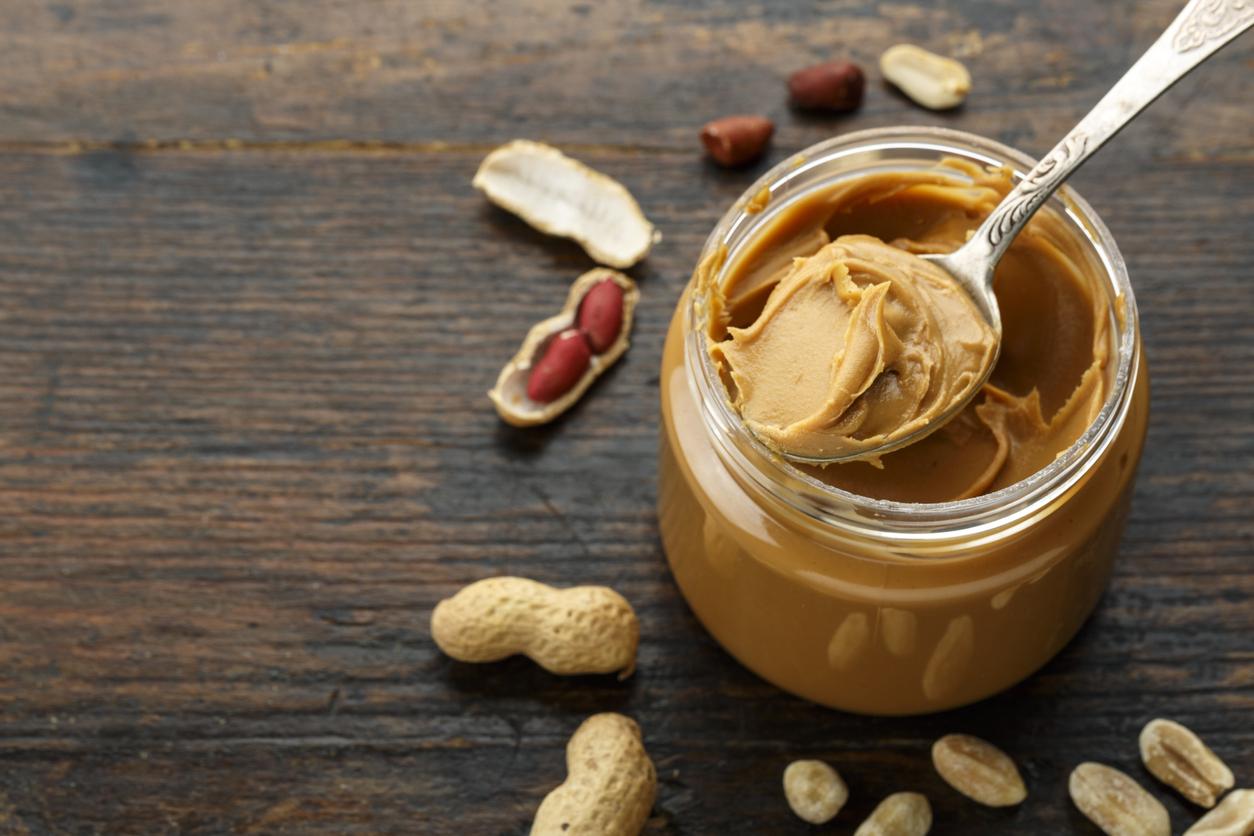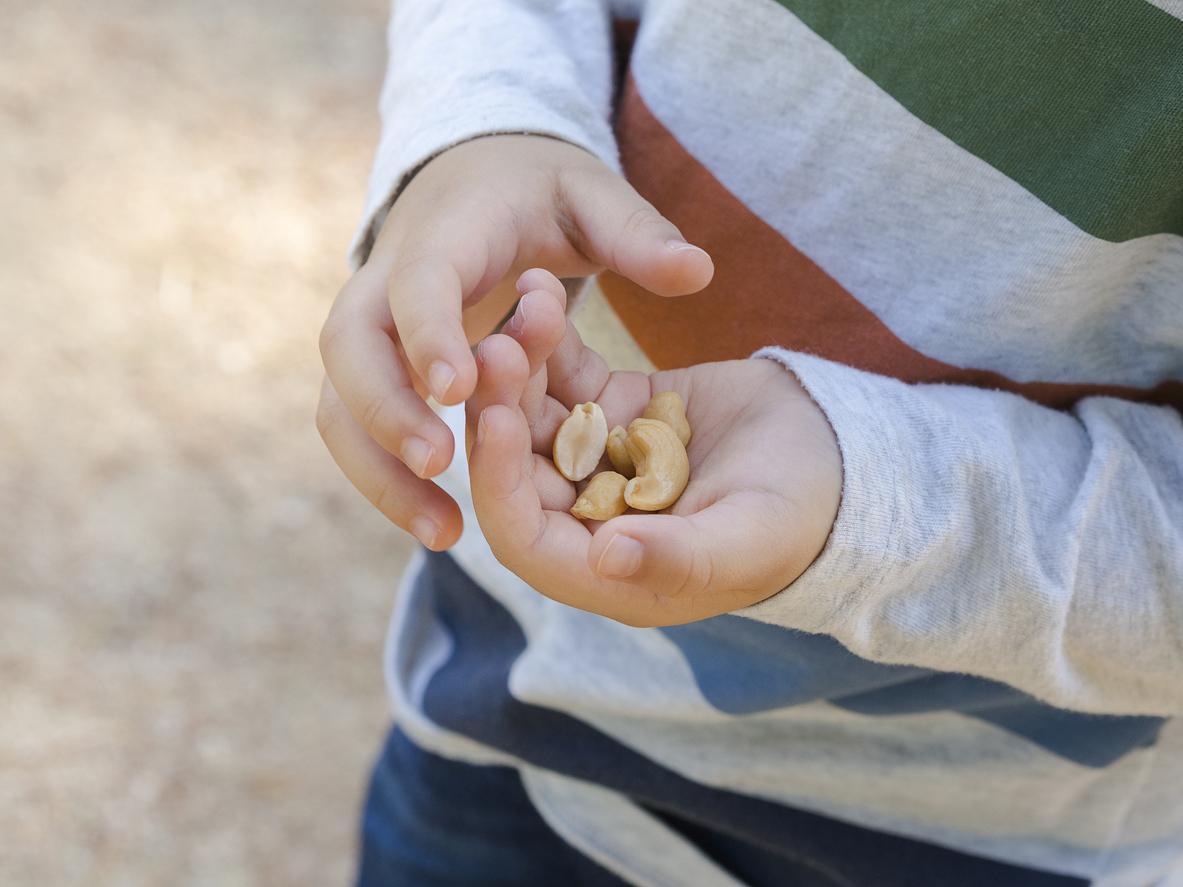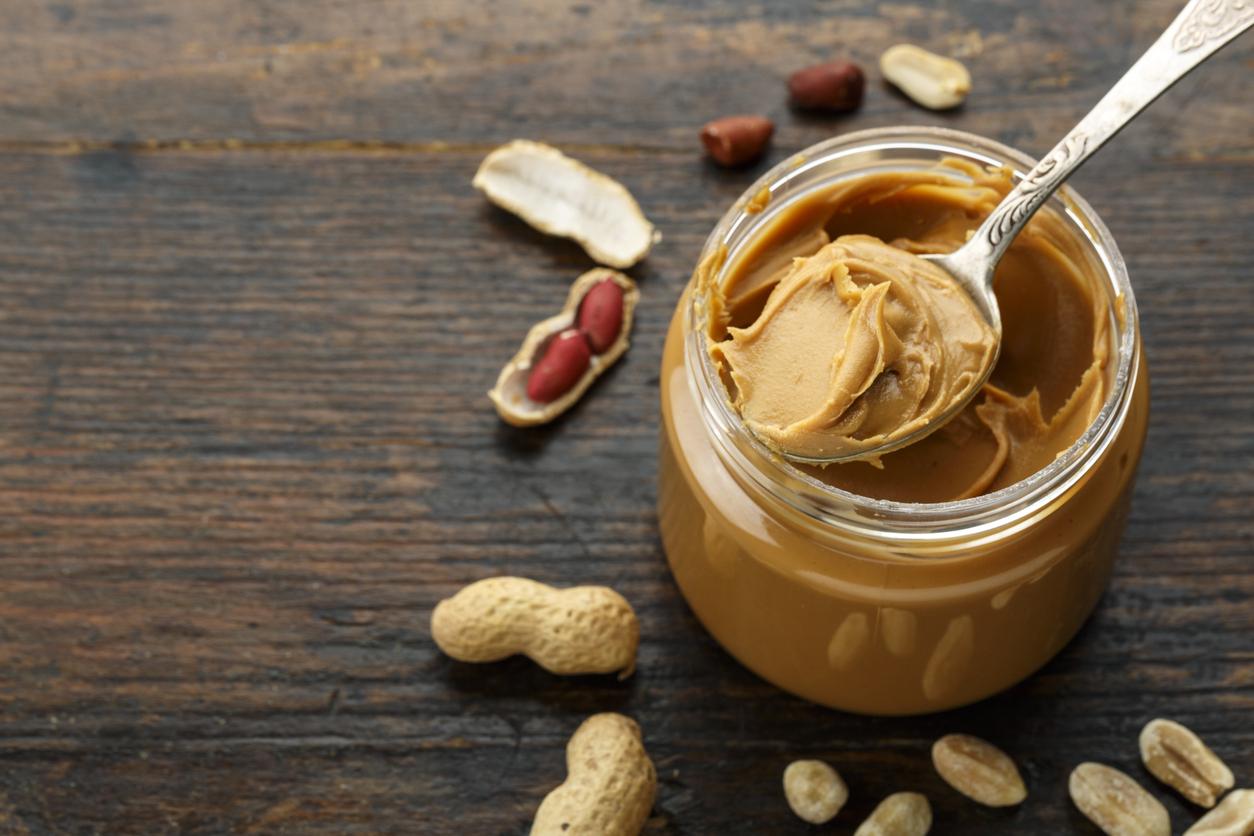Giving babies peanuts as young as four to six months old could reduce their risk of being allergic to them by 77%.

- Peanut allergy “affects 1 to 2% of children in Europe” and develops when the infant reaches the age of one year.
- Introducing peanuts into the diet of babies, at four months for those with eczema and at six months for those in good health, reduces the risk of allergy by 77%.
- Babies should not be given whole or broken peanuts, but suitable products, such as peanut butter.
Egg, mustard, fish, nuts or seafood… These are the most common food allergens in toddlers. Among them, we also find peanuts, more commonly known as peanuts. This allergy “affects 1 to 2% of children in Europe. For the most part, it has developed when the child reaches the age of one year”, said researchers from the University of Southampton (England). In a recent study, they advise introducing peanuts to infants’ diets earlier to prevent it.
Peanut allergies: a 77% reduction in risk
In order to reach this conclusion, they determined the populations most at risk and the timing of the introduction of peanut products. As part of the work, the scientists used data from two trials, called “Enquiring About Tolerance (EAT)” and “Learning Early About Peanut Allergy (LEAP)”. The latter focused on children at high risk of suffering from this food allergy and toddlers at low risk of developing it.
“A 77% reduction in peanut allergy was estimated when peanuts were introduced to the diets of all infants, at four months for those with eczema and six months for those without. being not reached. If the introduction was delayed to 12 months, the allergy was reduced by only 33%”, can we read in the results published in the journal The Journal of Allergy and Clinical Immunology.
Give baby-friendly peanut products
According to the authors, the introduction in question should be with products in the form of smooth peanut butter or other baby-friendly peanut-based snacks, and not in the form of whole or broken peanuts. They advise mothers to breastfeed their child for at least the first six months of life and to introduce peanuts into their diet between four and six months.
“These latest data show that applying simple, inexpensive, and safe recommendations to the entire population could be an effective preventative public health strategy that would bring significant benefits to future generations,” said Graham Roberts, author of the research, in a statement.


















